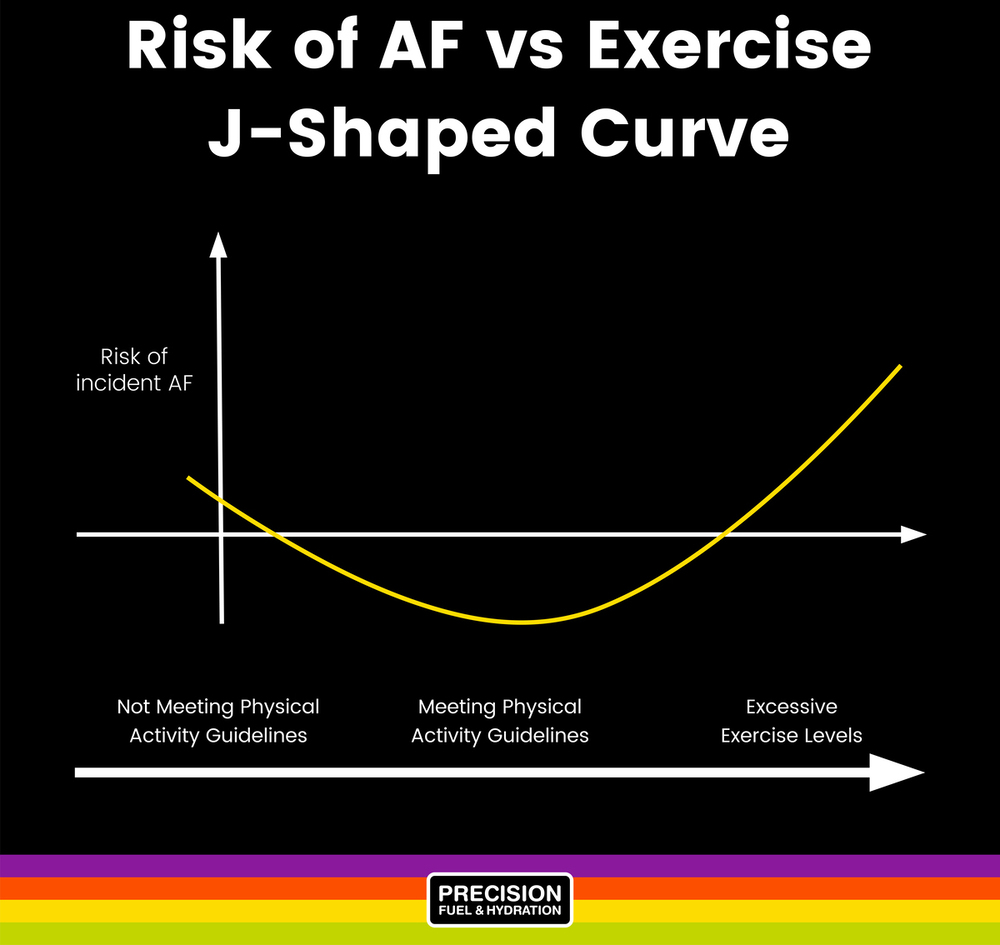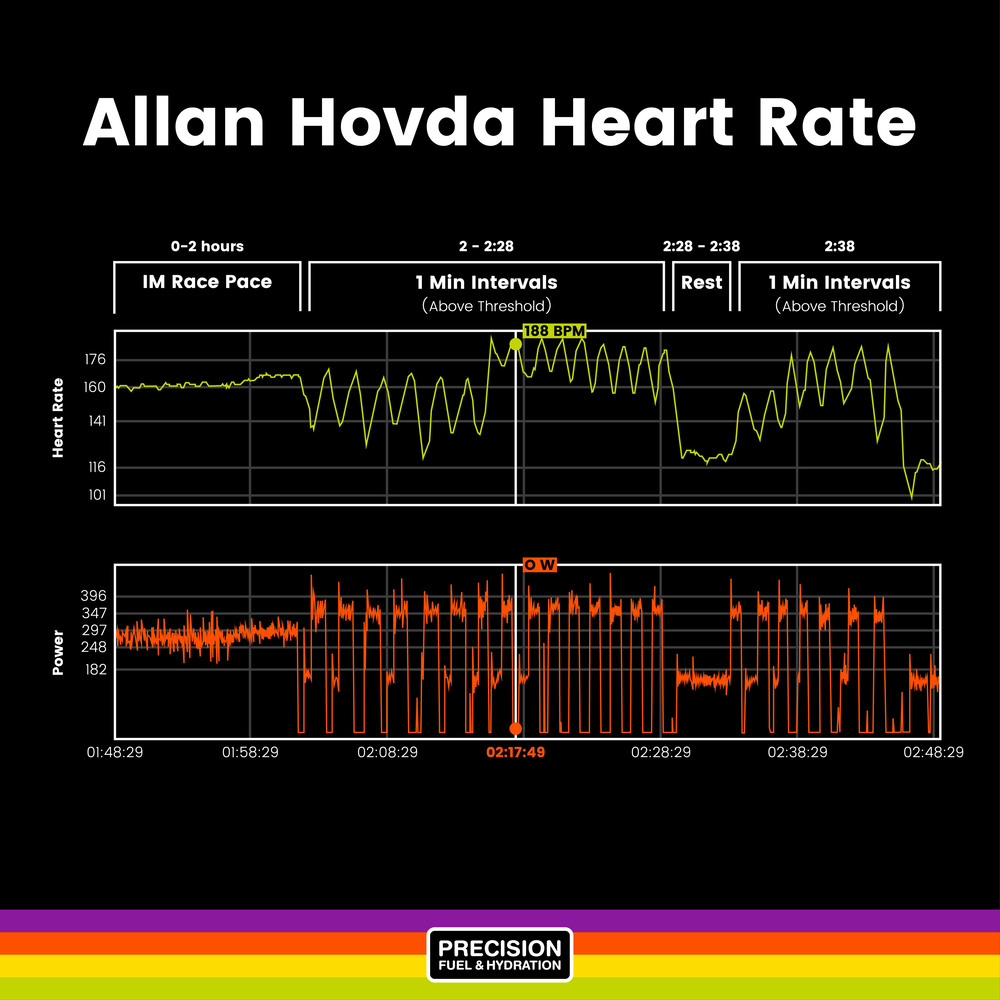A growing body of research has explored why lifetime endurance athletes are statistically 5x more likely than their sedentary peers to develop a heart condition called Atrial Fibrillation (AF).
The condition is characterised by a ‘fluttering’ feeling in the chest (palpitations), shortness of breath, loss of power, possibly chest pains, light headedness or fainting, and fatigue. It'll likely be visible on a decent heart rate monitor as you’ll see periods of uncharacteristically high readings.
Consultant Cardiologist, Dr Robin Van Lingen, told us, "If you're cruising and running between 150-165 beats per minute, you might find it'll jump up to about 180bpm. You'll be hitting your maximum target heart rate, despite only putting out moderate effort."
To get a first-hand view of the condition, we spoke to three-time Norseman winner, Allan Hovda, about his experiences of AF...
Hi Allan, so when did you first start to notice that maybe something wasn’t quite right with your heart?
I think I first noticed it during a marathon treadmill running session, but I just didn’t connect the dots. But the first time I got it in a race and started to recognise something was wrong was during a middle-distance triathlon.
Subjectively, my heart felt out of rhythm and I could feel it was pumping much harder. I then looked at my heart rate on my watch and it was around 10-15 beats higher than it should have been.
But even then, I could put it down to something else. It was a technical part of the course, I was in the leading group, so maybe I’m just working harder right now.
Everything then settled down, until about 9km into the run and I could feel it again. I tried some easy jogging and it normalised, but I ended up walking back to the transition area at the end of the first lap of a two-lap course.
After the race, I thought, ‘I’ve got to understand what that was. It wasn’t alright’.
Understandably so. How did you go about getting a diagnosis?
I was checked out by a doctor in Norway quite quickly when I got home, although we’ve since found that the difficulty for me is that the symptoms don’t show outside of races.
So, they hooked me up to a 48-hour ECG monitoring and I was 99% certain that I wouldn’t get the elevated heart rate in a scenario that didn’t involve exercise, so I did some treadmill running and the doctor noticed one or two beats that were off. He diagnosed me with Atrial Fibrillation.
AF is a condition that’s more prevalent in athletes and there appears to be a relationship between ‘excessive’ exercise over many years and incidence of AF. For context, how many hours a week would you train, Allan?
It’s around 15-24 hours a week, with a typical week of about 20 hours.
So, for me, it was quite hard not to get straight back to training after being diagnosed, but the doctor eventually gave me the go-ahead to train as normal.

And how often have you experienced the spikes in heart rate since then?
In the first year, in 2021, I only experienced it three times. But then it started to become more regular and it would come on every five-to-six weeks. And it’s quite noticeable for me, so my heart rate jumps by 10-15 beats, which sounds small, but for me it’s going from 170 to 185 - that's my maximum heart rate if I'm doing a ramp test.
So, I very rarely see those numbers, but when the heart issue comes on, I can be up at 185bpm for an hour.
It isn't a good feeling. It's not painful, like falling off a bike, but it’s uncomfortable.

You can see from the image above that whilst Allan's power stays constant on each of his intervals, his heart rate jumps significantly on the seventh interval and remains elevated for the rest of the session due to AF.
How have you resolved or managed those issues?
My aunty was a 2:30 marathoner in her youth and she told me of someone in her team who had similar issues to mine and he would lie down until the symptoms resolved, before starting running again. It’s worked pretty well for me too.
And I’ve also had an operation called an ablation, which tries to create scar tissue that breaks the abnormal circuits in the heart. It was a no-brainer as it has a high chance of success and there’s very little risk. I was in and out of the hospital in about four hours, and was able to walk around that day, before returning to light training and eventually full training during the following weeks.
Unfortunately, the surgery wasn’t a success. 20% of people do need a second surgery, and I wasn’t too depressed. I’ve found that I’m able to manage the issue and to continue doing endurance sports that I love.
Was there ever a concern that this would stop you being able to do endurance sport?
I think that decision comes down to personality. I'm very objective, although some people might say I act without emotions! If the first doctor had come to me and said “you will die if you continue to compete at that level”, I would go for a second opinion, and if that second doctor was in agreement, then I would have to stop.
I probably lack a fear that I could die, but the heart issue has made me realise I have to do something about it as I have a wife and young family too. I’ve been talking to the best people in the field and they say it’s unlikely to be lethal.
And how has AF affected you more recently?
I did get the heart issue after ~14K of a 50k race. I was still able to run around five seconds slower per kilometre, but it felt uncomfortable. I was very close to quitting and my wife asked me why I didn’t.
I had to think about that during the race, but the issue with quitting is that once you quit, there's no more learning to do.
And so what would be your advice to a fellow athlete who’s experienced AF symptoms?
From what I understand, it’s not very common for AF to be deadly. Try not to get too anxious about it because that isn’t helpful, but obviously do get it checked out and hopefully get the issue resolved.